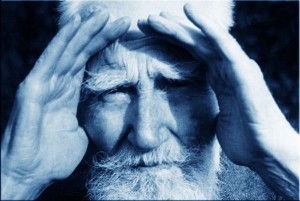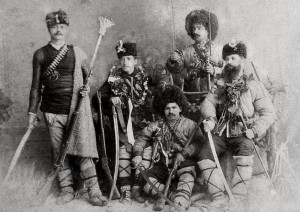Dismantling the Codes: Looking at Anti-Romanticism, War & Oppression in Shaw
Following on a critical examination of the chivalric and courtly codes that mirrored the idealized, noble values of the Middle Ages, this section looks at iterations of “Romance” principles through the ages. Undertaking a comparative survey, it explores the dynamic tension between expressions of the romantic and the prosaic; weighing them one against the other, as does Shaw. Moreover, this section looks at issues of War and Oppression as they were reflected in aspects of Victorian Culture, the British Empire and the broader Global Context.
ROOTS & ORIGINS; ROMANCE AND OPPRESSION I
When we look at Shaw’s reaction to romantic, militarist and oppressive ideals, it is important to understand what it was that he was reacting to. In many respects, Bernard Shaw was born into a time not so different from our own: wars were being raged over resources and territory; status and socioeconomics determined opportunity and quality of life; and a pervasive individualism—verging on the solipsistic—informed the greater sense of social rights and responsibilities….
(If these are new concepts or ones that you might need to refresh in your mind, review the following. Otherwise move forward to ROOTS & ORIGINS II)
Romanticism
http://www.philosopher.org.uk/rom.htm
Characteristics of Romantic Literature
http://www.odessa.edu/dept/english/dsmith/rom.lit.char.pdf
Solipsism
http://www.britannica.com/EBchecked/topic/553426/solipsism
David Cody’s ‘Social Class’
http://www.victorianweb.org/history/Class.html
Useful Notes and Definitions
Arms and the Man is the most popular and successful staged drama of Shaw. It is also an anti-romantic comedy because it exposes the folly cowardice of soldier’s shatters the romantic illusions about war and attacks severely romantic and sentimental love. In Arms and the Man, Shaw wittily, humorously and critically exposes the hollowness of romantic and emotional concept of war love and marriage.
Here are the definitions of some useful terms.
Anti-Romananticism
An anti-romance, sometimes referred to as a satire, is a type of story characterized by having an apathetic or self-doubting anti-hero cast as the protagonist, who fails in the object of his journey or struggle. Most anti-romances take place in urban settings, and frequently feature insanity, depression, and the meaning of reality as major themes. An anti-romance is the antithesis of a romance.
War
Info on the Serbo-Bulgarian War
War is an organized and often prolonged conflict that is carried out by states or non-state actors. It is generally characterised by extreme violence, social disruption and economic destruction. War should be understood as an actual, intentional and widespread armed conflict between political communities, and therefore is defined as a form of political violence or intervention. The set of techniques used by a group to carry out war is known as warfare. An absence of war is usually called peace.
Anti-Oppression
Oppression is the use of power to disempower, marginalize, silence or otherwise subordinate one social group or category, often in order to further empower and/or privilege the oppressor. Social oppression may not require formally established organizational support to achieve its desired effect; it may be applied on a more informal, yet more focused, individual basis. Anti-Oppression work seeks to recognize the oppression that exists in our society and attempts to mitigate its affects and eventually equalize the power imbalance in our communities.
ROOTS & ORIGINS; ROMANCE AND OPPRESSION II
These ideas, to which Shaw protested, however, did not have their origins in his age. They took shape in the preceding century, and they have an even older lineage that has been acting on Western Culture for nearly a millennium: the chivalric and courtly conventions of the middle ages. The Nineteenth Century notion of the gentleman and the lady, were very much informed by the ethos imbedded in these codes. As is ‘the higher lover’ of which Serguis speaks a great deal.
Visit the links, below:
R. Abels’ ‘Medieval Chivalry’
http://www.usna.edu/Users/history/abels/hh315/Chivalry.htm
Michael Delahoyde’s ‘Courtly Love’
http://public.wsu.edu/~delahoyd/medieval/love.html
‘The Concepts of Chivalry and Courtly Love’
http://www.bcconline.com/eng2/chivalry.htm
• According to these conventions what are the responsibilities of knights and ladies? Make a list as it relates to each of the two.
• Draft an inventory of Riana, Sergius and Bluntschli. How would they fare against the medieval codes?
• Had the play been set in the middle ages, why would none of the other characters in Arms and the Man—including Petkoff and Catherine—be subject to the scrutiny of such codes.
• There is evidence in these chivalric and romantic concepts of something akin to Sergius’ ‘higher love,’ what is it? What, then, might constitute Sergius’ ‘higher love?’
• Considering what we know thus far about Shaw what is his take on notions like ‘higher love,’ and why?
Now, visit these links:
David Cody’s ‘The Gentleman’
http://www.victorianweb.org/history/gentleman.html
Lynn Abrams’ ‘Ideals of Womanhood in Victorian Britain’
http://www.bbc.co.uk/history/trail/victorian_britain/women_home/ideals_womanhood_01.shtml
“The Genteel State:” Victorian Manners and the Civil War
http://www.geocities.ws/rowdy_pards/articles/genteel.html
Rules on Etiquette: The Measure of a Lady
http://www.geocities.com/victoriancanada/etti_quette.html
• According to these conventions what are the core responsibilities of Victorian gentlemen and ladies? Make a list as it relates to each of the two.
• Complete the ‘Qualities Chart’ (See Appendices) for Riana, Sergius and Bluntschli. Apply your lists to each of them, accordingly. How would they fare against Victorian, gender codes?
• How do the Victorian conventions align with the medieval ones? Which ones, in particular, stand out for you?
Considering all that you have looked at thus far, would you be surprised to discover that Shaw considered marriage to be an oppressive institution for women? Herein, we can find insights into his convictions around gender inequality and social oppression, generally.
Excerpts from ‘Intelligent Woman’s Guide…’
http://www.almaclassics.com/excerpts/Intelligent-Womans-Guide.pdf
Maria Popova’s ‘George Bernard Shaw on Marriage, the Oppression of Women and the Hypocrisies’ of Monogamy’
http://www.brainpickings.org/index.php/2013/07/26/george-bernard-shaw-on-marriage/
‘A Woman’s Right’ activity
http://www.bbc.co.uk/history/trail/victorian_britain/women_home/act_womens_rights_entry.shtml
RESPONDING TO SHAW’S ANTI-OPPRESSIVE STANCE
Select your five favourite quotes from the links above. Choose ones that provide insight into Shaw’s anti-oppression stance and that illustrate his commitment to social reform. Though these passages focus on gender oppression and inequality, they resonate with opinions echo in his anti-war stance.
Write a response for each selection. Explain:
• Why it ‘speaks’ to you?
• What it means/ what you think Shaw is saying/ or trying to say?
• What it tells you about Shaw?
• How are his values/ attitudes towards oppression highlighted?
• Who/ where/ what needs to change, or be in place, to overcome oppression?
Although Arms and the Man was originally entitled Alps and Balkans, and although it is set in Bulgaria, Shaw’s commentary on war and militarism apply on the home front. England certainly had its share of wars in the Nineteenth Century: forty-eight, officially. Conflicts in Africa, Eastern Europe and Asia marked the scope of British influence at the time, but also its continued ambitions.
Follow the links, below, to find out more about major conflicts recent or contemporaneous with Shaw and his audience that might have had some impact on Arms and the Man.
First Anglo Boer War
http://www.youtube.com/watch?v=tAC7p5MovV8
Russian War – Crimean War, 1853 to 1856
http://www.youtube.com/watch?v=a1yrAVPALxw
The Crimean War
http://www.youtube.com/watch?v=ni8jAvJIQug
The following articles consider both the historical and political determinants for ongoing militarism in the Ukraine, and—starting with one of Shaw’s own responses to The First World War—antimilitarist responses to global events.
Popularly associated with anarchic and socialist doctrines, antimilitarism—as distinct from Pacifism, which opposes violence, generally—is an ‘ideology and activities… aimed at reducing the civil power of the military and ultimately, preventing international war.’ From Paul B. Miller’s Revolutionaries to Citizens: Antimilitarism in France, 1870-1914 (Duke University Press, 2002. p 8):
Militarist myopia: George Bernard Shaw’s Common Sense about the War
http://rickrozoff.wordpress.com/2011/08/02/militarist-myopia-george-bernard-shaws-common-sense-about-the-war/
Understanding Ukraine: The Problems Today and Some Historical Context
http://www.youtube.com/watch?v=A2nklduvThs
Antimilitarism in the (new) German peace and anti-war movement after 11 September
http://peacenews.info/node/3969/antimilitarism-new-german-peace-and-anti-war-movement-after-11-september
Tactics for Combating Militarism
http://www.wri-irg.org/node/22197
• Having reviewed the above links, apply antimilitarist principles to the situation in the Ukraine. Prepare a toolbox of six strategies that could be applied to stave off total war as an inevitable escalation of the current conflict.
POSSIBLE EXTENSION:
Develop a mid-length paper, a manual or a webinar, developed from one of the topics that we have explored above.
*****************************************************************************************************
Following on a critical examination of the chivalric and courtly codes that mirrored the idealized, noble values of the Middle Ages, this section looks at iterations of “Romance” principles through the ages. Undertaking a comparative survey, it explores the dynamic tension between expressions of the romantic and the prosaic; a dialectic open to conversations that find relevance in Homer (in Dryden’s Virgil, of course) and Nicki Minaj, equally.
http://public.wsu.edu/~delahoyd/medieval/love.html
Useful Notes and Definitions
Arms and the Man is the most popular and successful staged drama of Shaw. It is also an anti-romantic comedy because it exposes the folly cowardice of soldier’s shatters the romantic illusions about war and attacks severely romantic and sentimental love. In Arms and the Man, Shaw wittily, humorously and critically exposes the hollowness of romantic and emotional concept of war love and marriage.
Here are the definitions of some useful terms.
Anti-Romananticism
An anti-romance, sometimes referred to as a satire, is a type of story characterized by having an apathetic or self-doubting anti-hero cast as the protagonist, who fails in the object of his journey or struggle. Most anti-romances take place in urban settings, and frequently feature insanity, depression, and the meaning of reality as major themes. An anti-romance is the antithesis of a romance.
War
Info on the Serbo-Bulgarian War
War is an organized and often prolonged conflict that is carried out by states or non-state actors. It is generally characterised by extreme violence, social disruption and economic destruction. War should be understood as an actual, intentional and widespread armed conflict between political communities, and therefore is defined as a form of political violence or intervention. The set of techniques used by a group to carry out war is known as warfare. An absence of war is usually called peace.
Anti-Oppression
Oppression is the use of power to disempower, marginalize, silence or otherwise subordinate one social group or category, often in order to further empower and/or privilege the oppressor. Social oppression may not require formally established organizational support to achieve its desired effect; it may be applied on a more informal, yet more focused, individual basis.
Anti-Oppression work seeks to recognize the oppression that exists in our society and attempts to mitigate its affects and eventually equalize the power imbalance in our communities.


